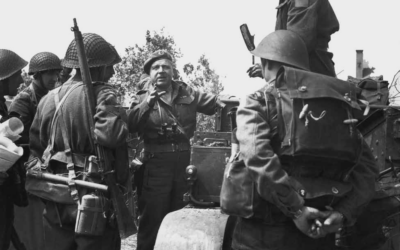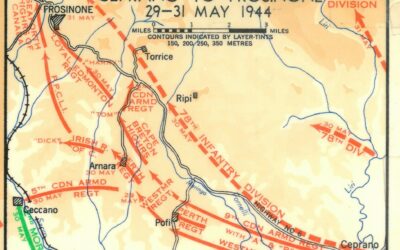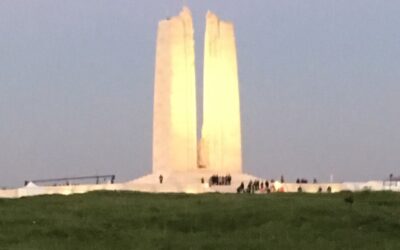“Few people know this even to this day. Many Japanese Canadians know it. The families of the veterans know it. The veterans know it. Somewhere among their possessions they have medals to prove it.” Years of Sorrow, Years of Shame [unattributed quote]
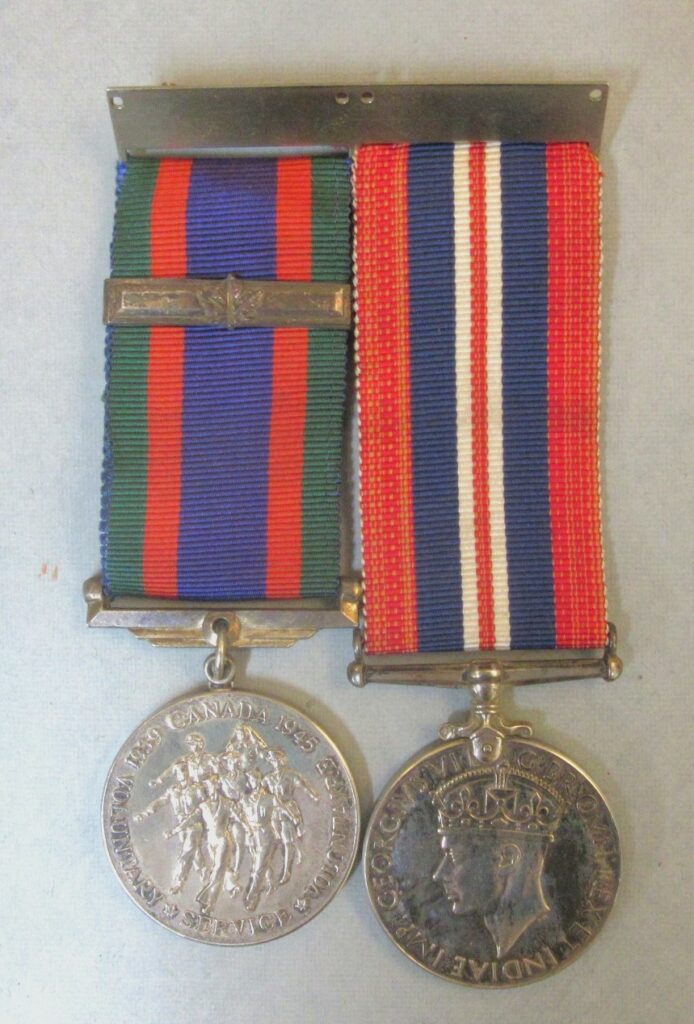
When the Second World War erupted in 1939, and especially at the start of the Pacific War in 1941, a vicious campaign was launched against Asian minorities in British Columbia to deny them the chance to demonstrate their loyalty to Canada with service in the Canadian forces. British Columbia politicians pushed the federal government in Ottawa to declare the Japanese Canadians, known as Nisei (first generation born in Canada), ‘enemy aliens,’ confiscate their property and force their evacuation to the interior regions of the province and points east. These measures echoed the internment operation against Eastern European ‘enemy aliens’ from 1914 to 1920.
By 1944, the British allies in Asia needed soldiers with Japanese language skills as interpreters, translators, and broadcasters, and their only source was Canada, so they canvassed the country for recruits for the British Army. The Canadian Army set up the S-20 Japanese Language School in Vancouver to teach written and oral skills.
Kelowna-born Hikaru Chic Mori was one of fifteen Nisei men from the Okanagan recruited for overseas service, all with service numbers starting with a K. His was K12511 when he enrolled in the Canadian Army in Vancouver on May 22, 1945, at the age of 25. Although Chic had never been to Japan, he had the best Japanese pronunciation of the candidates.
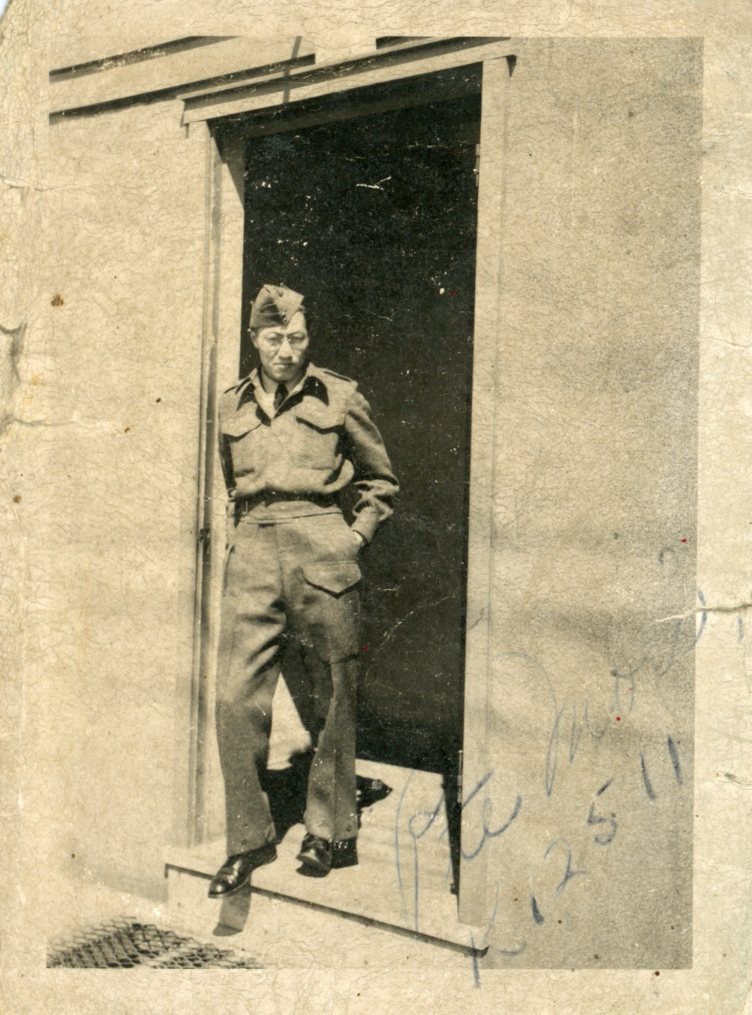
2022.075
Most of the Canadian recruits sat and waited without training until dispatched to the Far East. There was no time for basic training or the S-20 school. Chic Mori said, “We learned a few things about the Army. We learned how to salute, not to say ‘Sir’ to a Sergeant, and how to make beds army style.” We Went to War
No bands played for them when they left under a cloak of secrecy. First, Chic went to Montreal, then Washington, San Diego, Hawaii, Sydney, and finally, Melbourne, Australia. By now, Chic and George Uzawa from Summerland and the rest were promoted to Sergeants and wore the Canadian Intelligence badge on their Canadian uniforms.
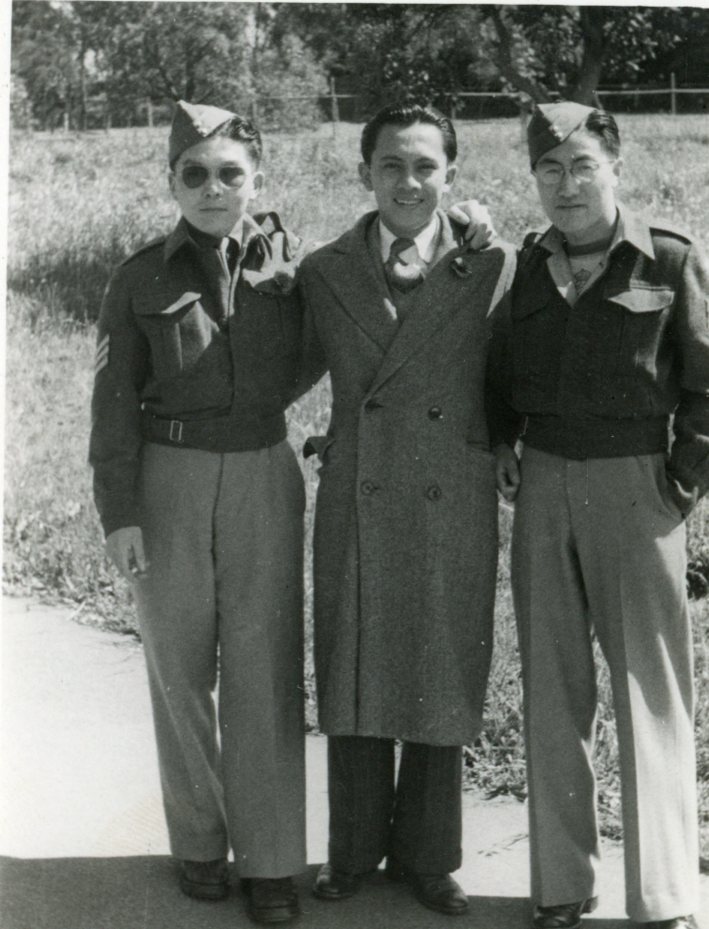
Melbourne Australia 1945
2022.075
“We were supposed to interpret, interrogate Japanese prisoners, that sort of thing. Nobody could fool me on a Japanese dialect because the structure of Japanese community [in Canada] had been such that we had people from the south of Japan to the north of the country, which is like the difference between the Sicilians and the Norwegians. No accent could stump me, so I was able to help out a lot in interpreting and question.” Years of Sorrow, Years of Shame [unattributed quote]
The British Columbia politicians didn’t want Ottawa to enlist Japanese Canadians born in Canada, enrolled or conscripted, into the armed forces because they would have to extend the provincial vote to them after the war. However, they had the right to vote in other Canadian provinces. The BC vote was extended to only about fifty veterans of the First World War of Japanese descent in 1931. The right to vote federally and provincially was finally extended to Nisei in 1948 and 1949.
“The truth is, in BC, they just didn’t want to give anybody the vote, whether Japanese, Chinese, Hindu, and anything Oriental. And that’s why our boys couldn’t join the Army when a lot were itching to go, and even fight against Japan, mind you. Because they would get the vote when they came back and wouldn’t that be terrible for poor BC.” Years of Sorrow, Years of Shame [unattributed quote]
“First, they won’t let us join up when in BC. Then they kicked us out of the place like we’re no good and spies and put us in camps all over the country, and then when the British say they wanted us, they raise a fuss and say, “No, these men are Canadian citizens. They go to war like Canadians.” Funny business.” Years of Sorrow, Years of Shame [unattributed quote]
Chic was honourably discharged from service on April 12, 1946, in Vancouver to face continued discrimination, such as registering for a travel permit with the R.C.M.P. to justify his presence within 100 miles of the coast and Veteran Land Act criteria. Hikaru Chic Mori married in 1956 and worked at Kelowna Nurseries until retirement in 1988. Veteran Chic Mori died in his hometown, Kelowna, on June 13, 2020.
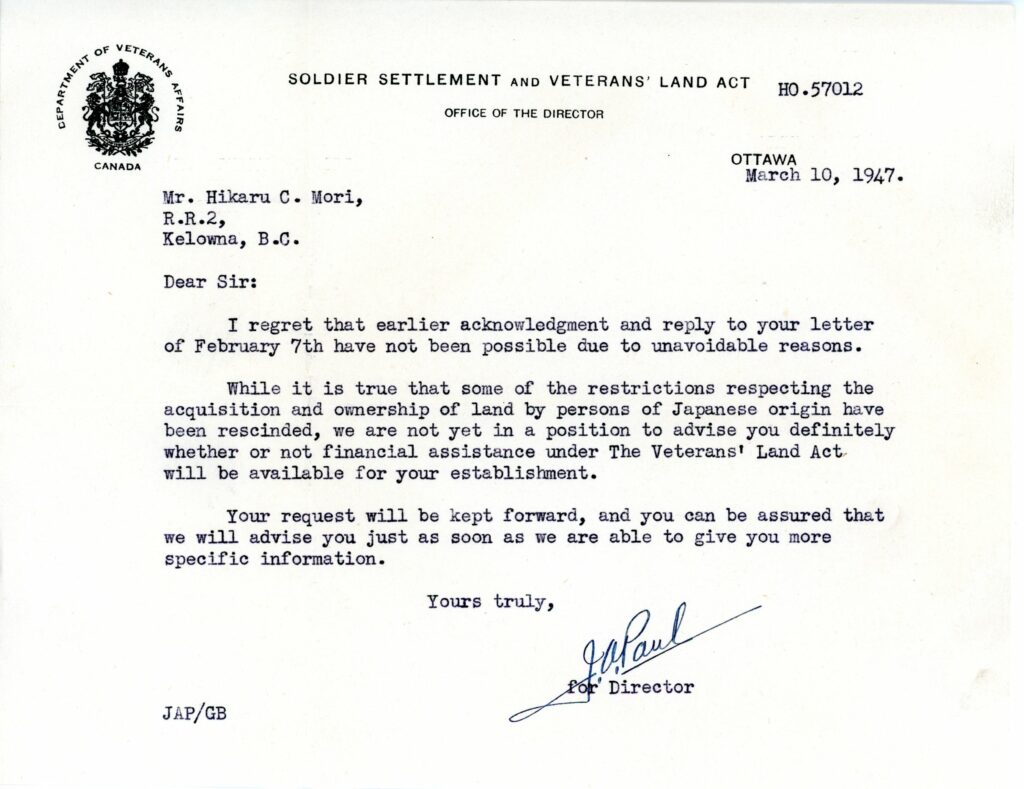
2022_075
The War Measures Act and associated anti-Nisei policies were repealed, and the Redress Settlement Act was enacted in 1988. Now we know about their service and have the medals – donated by Chic’s family – to prove it as we continue to explore our military history.
Sources
Broadfoot, Barry Years of Sorrow, Years of Shame Toronto: Doubleday, 1977; Pgs. 299/300; Pgs. 306/7; Pg. 302
Ito, Roy, (1922-) We Went to War: The Story of the Japanese Canadians Who Served During the First and Second World Wars Stittsville, Ont.: Canada‘s Wings, 1984; pg. 190
Kelowna and District Association of Japanese Canadians The Vision Fulfilled: 1894-1994 Editor Bill Hoshizaki Kelowna, B.C.: K.D.A.J.C., 1995; pgs. 75-77
Japanese Canadian Participation in World War I and World War II
By Susan Yatabe, Ewan Craig / March 19, 2019; https://discovernikkei.org/en/journal/2019/3/19/japanese-canadian-
vets/ accessed May 17, 2023

